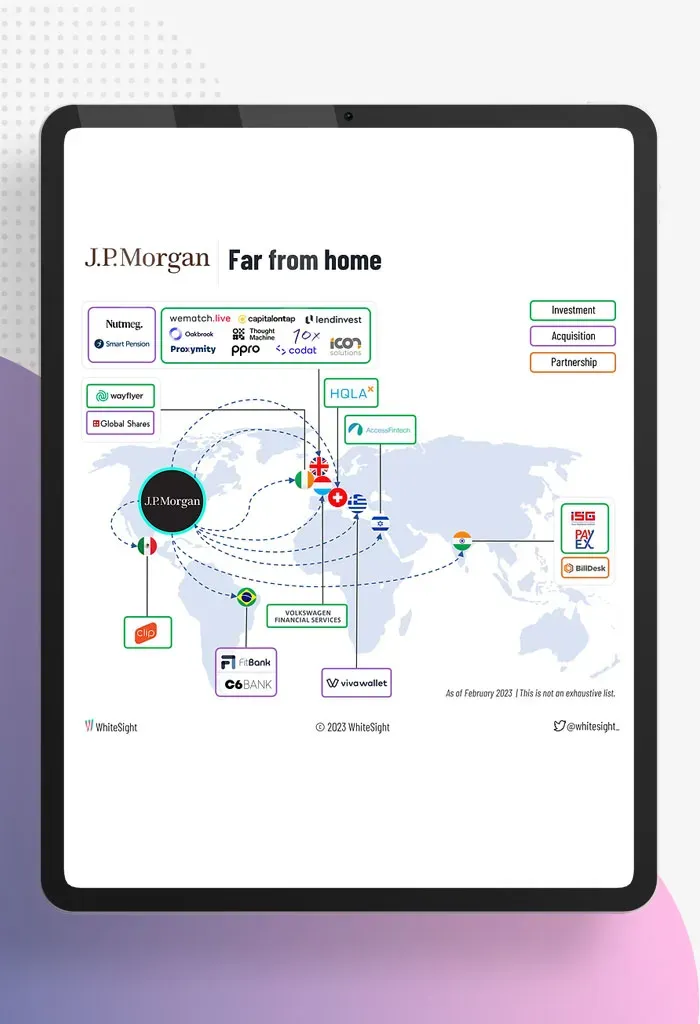JPMorgan fintech intermediaries, such as Plaid, are facing increasing scrutiny as the bank articulates concerns over their excessive data requests. These intermediaries enable various financial applications to interact with traditional banking systems, but their operations are reportedly overloading JPMorgan’s infrastructure. An internal memo revealed that a staggering 1.89 billion data requests bombarded JPMorgan’s systems in June, with only 13% stemming from actual customer transactions. This surge in fintech data requests has prompted discussions about potential new fees for access to the bank’s systems as JPMorgan aims to manage rising costs associated with this influx. As the dialogue continues, the implications for customers and fintech developers could reshape how data sharing occurs in the financial sector.
Fintech data aggregators play a crucial role in connecting innovative financial platforms with traditional banking services, enabling a seamless user experience. However, JPMorgan Chase’s recent assessment highlights that these data brokers, including popular services like Plaid, are contributing to system inefficiencies. With a notable percentage of their requests not tied to direct consumer interactions, the bank is pushing for a reconsideration of how these companies operate within the open banking framework. This evolving landscape raises essential questions about fair practices, transaction fees, and the overall sustainability of fintech relationships with traditional banks. As negotiations unfold, the outcome may redefine access to vital financial information and impact the future of online banking strategies.
The Impact of Fintech Intermediaries on Banking Systems
JPMorgan Chase has raised concerns about the overwhelming data requests coming from fintech intermediaries, such as Plaid, which are creating strain on the bank’s systems. With approximately 1.89 billion data requests logged in June alone, only a small fraction—13%—were initiated by customers for actual transactions. This imbalance highlights the potentially excessive nature of API calls made by these intermediaries, which not only burden traditional banking infrastructures but could also lead to increased JPMorgan Chase fees, as the bank seeks to manage the rising costs associated with these data demands.
The implications of this surge in fintech data requests extend beyond mere operational challenges; they threaten to disrupt the burgeoning fintech industry itself. As JPMorgan prepares to impose new fees on intermediaries for data access, many fintech firms may find their business models suddenly jeopardized. These changes could markedly decrease the free-flowing innovation that has often characterized the fintech landscape, leading to a potentially significant contraction in services offered to consumers.
Frequently Asked Questions
What are the implications of JPMorgan Chase fees for fintech intermediaries like Plaid?
JPMorgan Chase fees for fintech intermediaries may increase operational costs for companies like Plaid, as they will need to pay for API access that was previously free. This could lead fintechs to adjust their business models and pricing strategies.
How do Plaid API requests impact JPMorgan’s systems?
Plaid API requests significantly impact JPMorgan’s systems by overwhelming them with excessive data pull requests that often exceed essential transaction needs. In June alone, 1.89 billion API calls were logged, where only 13% were customer-initiated.
What are the new challenges posed by the open banking rule for JPMorgan and fintechs?
The open banking rule facilitated collaboration between fintechs and traditional banks, but its potential repeal by the courts poses new challenges. It may introduce costs for data access that fintechs historically enjoyed for free, complicating customer data retrieval.
How do fraud claims affect fintech intermediaries like Plaid working with JPMorgan?
According to JPMorgan, transactions processed through fintech intermediaries like Plaid are 69% more likely to result in fraud claims. This trend heightens scrutiny on the operations of fintechs and raises concerns about their systems’ security protocols.
Why is JPMorgan concerned about fintech data requests from intermediaries?
JPMorgan is concerned about fintech data requests because they burden their systems with unnecessary data pulls that complicate processing and increase the likelihood of fraud. JPMorgan’s internal data indicates a significant increase in API calls, straining their infrastructure.
What actions might JPMorgan take regarding API access for fintech companies like Plaid?
JPMorgan may impose new fees for API access to manage the rising costs associated with the services provided to intermediaries like Plaid. This could result in a substantial financial impact on fintech companies reliant on these connections.
How does customer behavior affect data access requests through fintech intermediaries?
Customer behavior directly affects data access requests as many users authorize fintech apps to pull data frequently without fully understanding the implications. This results in high volumes of API requests even when customers are not actively using the applications.
What could be the future of fintech collaborations with JPMorgan amid regulatory changes?
The future of fintech collaborations with JPMorgan could hinge on the outcome of regulatory changes surrounding open banking. If access fees are implemented and the open banking rule is overturned, fintechs may need to adapt their business operations to new compliance Landscapes.
| Key Point | Details |
|---|---|
| Excessive Data Requests | Fintech intermediaries are overwhelming JPMorgan’s systems with unnecessary requests, with only 13% of data requests from customers. |
| Volume of Requests | In June, there were 1.89 billion data requests from intermediaries impacting JPMorgan’s systems. |
| API Calls | Most API calls were for purposes like product enhancement, fraud prevention, or data resale, not just transactions by customers. |
| Costly Infrastructure | JPMorgan plans to impose fees on intermediaries due to rising costs in managing the increased volume of data. |
| Negotiations | Negotiations for new fee structures are in progress, potentially disrupting the fintech ecosystem. |
| Fraud Claims | Fraud claims tied to transactions involving data intermediaries are increasing, with JPMorgan reporting a $50 million loss. |
| Plaid’s Role | Plaid, a key intermediary, is responsible for a significant portion of API requests, prompting concerns over data access. |
Summary
JPMorgan fintech intermediaries are facing scrutiny as the bank highlights overwhelming data requests that strain its systems. As the conversation surrounding fees escalates, the future of how these intermediaries operate will likely hinge on negotiations and the potential regulations that may be enacted in response to the current landscape. Understanding the impact of this situation is crucial for both fintech companies and their consumers.



